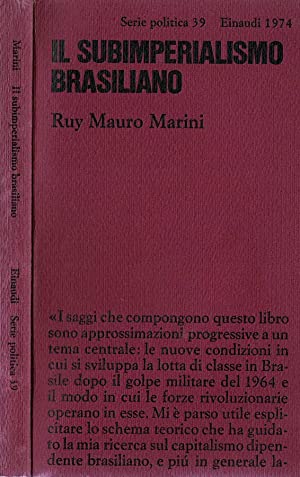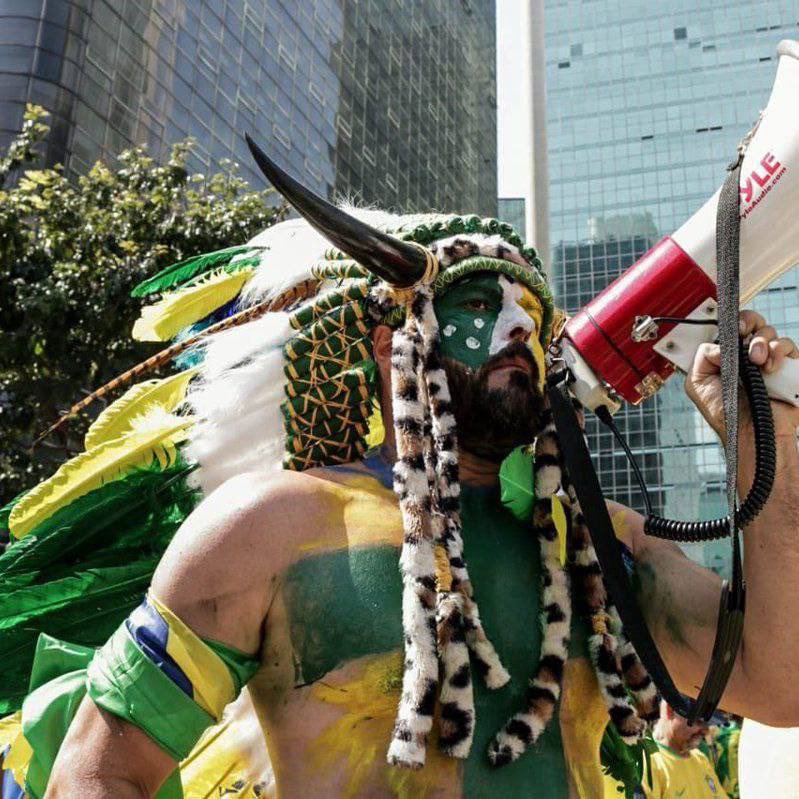A look at sub-imperialism and multipolarity in Brazil historically and into the future.
In the Open Veins of Latin America Eduardo Galeano described an 1870 genocidal war of regime change waged on Paraguay by a Triple Alliance of its neighbors, Argentina, Uruguay, and Brazil, on behalf of British imperialism. The target, nationalist president Solano Lopez, died in battle. The country lost 56,000 square miles of territory. Paraguay’s population was reduced by 83.3 percent.
By the end, Galeano wrote: “Brazil had performed the role the British had assigned it.” Before the intervention, “Paraguay had telegraphs, a railroad, and numerous factories manufacturing construction materials, textiles, linens, ponchos, paper and ink, crockery, and gunpowder… the Ibycui foundry made guns, mortars, and ammunition of all calibers… the steel industry… belonged to the state. The country had a merchant fleet… the state virtually monopolized foreign trade; it supplied yerba mate and tobacco to the southern part of the continent and exported valuable woods to Europe… With a strong and stable currency, Paraguay was wealthy enough to carry out great public works without recourse to foreign capital… Irrigation works, dams and canals, and new bridges and roads substantially helped to raise agricultural production. The native tradition of two crops a year, abandoned by the conquistadors, was revived.”
After the war: “it was not only the population and great chunks of territory that disappeared, but customs tariffs, foundries, rivers closed to free trade, and economic independence… Everything was looted and everything was sold: lands and forests, mines, yerba mate farms, school buildings.”
Summarizing all this, Galeano wrote: “Paraguay has the double burden of imperialism and subimperialism.”
“Subimperialism,” Galeano continued, “has a thousand faces.” Paraguayan soldiers joined an intervention against the Dominican Republic in 1965, under the command of a Brazilian general, Panasco Alvim. Paraguay “gave Brazil an oil concession on its territory, but the fuel distribution and petrochemical business [was] in U.S. hands.” The U.S. also controlled the university, the army, and the black market as well, of which Galeano wrote: “Through open contraband channels, Brazilian industrial products invade the Paraguayan market, but the Sao Paulo factories that produce them have belonged to U.S. corporations since the denationalizing avalanche of recent years.”
Elaborating on Brazil’s sub-imperial function since 1964, Galeano wrote: “A very influential military clique pictures the country as the great administrator of U.S. interests in the region, and calls on Brazil to become the same sort of boss over the south as the [U.S.] is over Brazil itself.”
Ruy Mauro Marini Analyzes the Phenomenon
It is perhaps no coincidence that the leading scholarly authority on sub-imperialism is the Brazilian scholar Ruy Mauro Marini. Mauro’s 1977 article was published shortly after Galeano’s book. To understand “global capitalist accumulation and subimperialism” some background on the theory of imperialism set out by Lenin is in order, and more recent books like Zak Cope’s The Wealth of Some Nations and Patnaik and Patnaik’s A Theory of Imperialism teach the theory eloquently.
The key concepts are unequal exchange and value transfer, magical processes through which the wealthy countries exchange smaller amounts of labor for larger amounts of labor from the poor countries. The mechanisms are many: patent regimes, Western corporate control of Global South resources, denomination of oil and other commodities in U.S. dollars, IMF and Western-bank loan terms and draconian rescue packages, Western arms sales and military training programs—all backed up by the threat of sanctions, coups, invasions, and “color revolutions,” which happen frequently enough to remind Global South governments to stay in line.
In Imperialism, Lenin described the pressure on wealthy countries to “go imperialist:” winners in the Western domestic market invariably consolidate and tend towards monopoly; these winners are invariably coordinated increasingly through banks and financial interests; throwing new investments in to a mature market brings lower returns than they can get in newly opened ones, so the financiers seek colonies to get high returns on their growing piles of capital; the colonies also address their interests in labor and raw materials that are cheap (or ideally, free, through theft).
Mauro shows how this dynamic can lead to sub-imperialism if the context is right. Sub-imperialism, he writes, is “the form assumed by the dependent economy when it reaches the stage of monopoly and finance capital,” and it has two basic components.
The first is a “relatively autonomous” expansionist policy that functions under the overall umbrella of U.S. hegemony.
The second is what Mauro calls a “medium” organic composition of capital. To explain this concept an example comparison will suffice: an economy with a high organic composition of capital is one where workers use advanced, costly machinery that itself required a lot of labor to produce (the word “composition” refers to how much so-called “dead labor” went into the machines on which the “living labor” is now laboring). These are the workers in the vacuum labs making nanometre-precise computing chips. An economy with a low organic composition of capital is one where workers labor with their hands or simple tools, cutting sugar cane with machetes as day laborers. Their work is called “unskilled” and their wages are proportionately lower.
In 1977, Mauro argued that in Latin America, only Brazil had both the medium organic composition and the relatively autonomous expansionist policy. But what about today? And what about in other regions?
Generalizing the Concept
Are there sub-imperialists in South Asia? Pakistan exercises its ambitions in Afghanistan under U.S. hegemony. Imran Khan was overthrown in a coup for withdrawing support for the U.S. occupation of Afghanistan; his successors have worked hard to prove their subordination to the hegemon. India meddles in the affairs of its small neighbors like Bhutanand does so under U.S. hegemony; Western corporations certainly have an immense footprint in both India and Pakistan.
In the Middle East, Saudi Arabia and Turkey qualify as sub-imperialists though both showcase how each sub-imperialist is a special case. In Africa, South Africa has been analyzed as a sub-imperialist and tiny Rwanda could well qualify as a Central African version.
Who doesn’t fit? None of the U.S. Five Eyes partners (Australia, New Zealand, Canada, or UK) nor Japan, nor Israel, since all are high-income countries with higher than “medium” organic composition of capital.
Nor do China, Russia, or Iran fit the sub-imperialist mold. They may exercise hegemony—or contest it—in their regions, but they do not do so under the umbrella of U.S. hegemony.
This brings us back to Brazil and to the changes in the world since the writings of Mauro and Galeano on sub-imperialism.
Sub-Imperialism and Multipolarity
Until very recently, unilateral U.S. hegemony was the basic fact of world affairs.
No one could contest the U.S. invasions of Grenada, Panama, Iraq, or Haiti or its destruction of Yugoslavia and Libya. But Russia and Iran did contest the U.S. plan to dismantle Syria in 2015.
When Yemen voted against the U.S. invasion of Iraq in 1990, they were told that it was “the most expensive vote they ever cast” and punished economically. But by 2022 many countries remained neutral in the Russia-Ukraine War despite Western demands that they support Ukraine. India and China ignored Western demands that they refuse to buy Russian energy, expanding a series of options for trading commodities in currencies other than the U.S. dollar. African countries need not beg Western commercial banks for development finance: they can examine Western offers side-by-side with the Chinese Belt and Road Initiative. In 2023, China brokered a peace deal that restored relations between Saudi Arabia and Iran.
These developments reveal a historical change from a unipolar to a multipolar world order. The world has been under unipolar Anglo-American hegemony since the 1750s. There were world empires prior to that (notably the Spanish and Portuguese) but China and India each had around 25 percent of the world economy even at that time; a few centuries earlier, before the devastation of the Americas, the world was even more multipolar, if much less globalized.
If we are indeed moving away from the unipolar historical pattern, current sub-imperialists have some re-thinking to do: the U.S. umbrella is not what it once was.
Sub-Imperialism or Multipolarity? Which Way for Brazil?
With Lula (Luiz Inácio Lula da Silva) back in the president’s office in Brazil as of 2023, the country faced this precise dilemma. In his previous tenure, Lula acted as both a multipolarist and a sub-imperialist. An early proponent of multipolarity (before the moment had even arrived) through his advocacy of BRICS (Brazil, Russia, India, China, and South Africa) and of Latin American integration, Lula’s Brazil played the sub-imperial role as well, leading the morally compromised and disastrous UN mission to take over the U.S. occupation of Haiti. Some of the military officers who led the Haiti occupation helped overthrow Lula’s party in the coup that led to his jailing and eventually to Bolsonaro’s destructive presidency.
Bolsonaro was certainly, symbolically sub-imperialist: he saluted the U.S. flag and marched under the Israeli one. But most of his time in office was characterized by a disastrous COVID-19 response, genocidal policies against Indigenous peoples, and a general incoherence on foreign policy. Bolsonaro participated in a regime change stunt in Venezuela but tried to stay out of the Russia-Ukraine war.
Lula returned to office in a context of weaker domestic left-wing movements but a stronger multipolar context. Lula’s Brazil voted with the West in the condemnation of Russia’s invasion of Ukraine but Brazil was told by Russian diplomats that Russia understood the vote.
There are economic considerations beyond the organic composition of capital that can drive Global South leaders back into the criminal arms of the U.S.—dependence on natural resource exports and foodgrain imports are tendencies that are difficult to reverse, especially in democracies like Brazil that are vulnerable to coups or regression when the right-wing returns to power.
Perhaps Brazil will be the vanguard of multipolarity in the Americas, or the sub-imperialist agent undermining BRICS from the inside. The changing world includes possibilities never contemplated by Galeano, Mauro, or Lenin.
Justin Podur is a Toronto-based writer and a writing fellow at Globetrotter. You can find him on his website at podur.org and on Twitter @justinpodur. He teaches at York University in the Faculty of Environmental and Urban Change.
This article was produced by Globetrotter.



